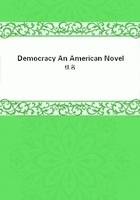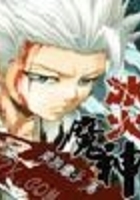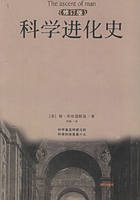'Oh,it wasn't any trouble.I am setting the hens in about a week.But they won't be scared of you.I s'll have to see to them morning and night,but I shan't bother you any more than I can help.'
'But you wouldn't bother me,'she pleaded.'I'd rather not go to the hut at all,if I am going to be in the way.'
He looked at her with his keen blue eyes.He seemed kindly,but distant.
But at least he was sane,and wholesome,if even he looked thin and ill.
A cough troubled him.
'You have a cough,'she said.
'Nothing--a cold!The last pneumonia left me with a cough,but it's nothing.'
He kept distant from her,and would not come any nearer.
She went fairly often to the hut,in the morning or in the afternoon,but he was never there.No doubt he avoided her on purpose.He wanted to keep his own privacy.
He had made the hut tidy,put the little table and chair near the fireplace,left a little pile of kindling and small logs,and put the tools and traps away as far as possible,effacing himself.Outside,by the clearing,he had built a low little roof of boughs and straw,a shelter for the birds,and under it stood the live coops.And,one day when she came,she found two brown hens sitting alert and fierce in the coops,sitting on pheasants'eggs,and fluffed out so proud and deep in all the heat of the pondering female blood.This almost broke Connie's heart.She,herself was so forlorn and unused,not a female at all,just a mere thing of terrors.
Then all the live coops were occupied by hens,three brown and a grey and a black.All alike,they clustered themselves down on the eggs in the soft nestling ponderosity of the female urge,the female nature,fluffing out their feathers.And with brilliant eyes they watched Connie,as she crouched before them,and they gave short sharp clucks of anger and alarm,but chiefly of female anger at being approached.
Connie found corn in the corn-bin in the hut.She offered it to the hens in her hand.They would not eat it.Only one hen pecked at her hand with a fierce little jab,so Connie was frightened.But she was pining to give them something,the brooding mothers who neither fed themselves nor drank.She brought water in a little tin,and was delighted when one of the hens drank.
Now she came every day to the hens,they were the only things in the world that warmed her heart.Clifford's protestations made her go cold from head to foot.Mrs Bolton's voice made her go cold,and the sound of the business men who came.An occasional letter from Michaelis affected her with the same sense of chill.She felt she would surely die if it lasted much longer.
Yet it was spring,and the bluebells were coming in the wood,and the leaf-buds on the hazels were opening like the spatter of green rain.How terrible it was that it should be spring,and everything cold-hearted,cold-hearted.Only the hens,fluffed so wonderfully on the eggs,were warm with their hot,brooding female bodies!Connie felt herself living on the brink of fainting all the time.
Then,one day,a lovely sunny day with great tufts of primroses under the hazels,and many violets dotting the paths,she came in the afternoon to the coops and there was one tiny,tiny perky chicken tinily prancing round in front of a coop,and the mother hen clucking in terror.The slim little chick was greyish brown with dark markings,and it was the most alive little spark of a creature in seven kingdoms at that moment.Connie crouched to watch in a sort of ecstasy.Life,life!pure,sparky,fearless new life!New life!So tiny and so utterly without fear!Even when it scampered a little,scrambling into the coop again,and disappeared under the hen's feathers in answer to the mother hen's wild alarm-cries,it was not really frightened,it took it as a game,the game of living.For in a moment a tiny sharp head was poking through the gold-brown feathers of the hen,and eyeing the Cosmos.
Connie was fascinated.And at the same time,never had she felt so acutely the agony of her own female forlornness.It was becoming unbearable.
She had only one desire now,to go to the clearing in the wood.The rest was a kind of painful dream.But sometimes she was kept all day at Wragby,by her duties as hostess.And then she felt as if she too were going blank,just blank and insane.
One evening,guests or no guests,she escaped after tea.It was late,and she fled across the park like one who fears to be called back.The sun was setting rosy as she entered the wood,but she pressed on among the flowers.The light would last long overhead.
She arrived at the clearing flushed and semi-conscious.The keeper was there,in his shirt-sleeves,just closing up the coops for the night,so the little occupants would be safe.But still one little trio was pattering about on tiny feet,alert drab mites,under the straw shelter,refusing to be called in by the anxious mother.
'I had to come and see the chickens!'she said,panting,glancing shyly at the keeper,almost unaware of him.'Are there any more?'
'Thurty-six so far!'he said.'Not bad!'
He too took a curious pleasure in watching the young things come out.
Connie crouched in front of the last coop.The three chicks had run in.But still their cheeky heads came poking sharply through the yellow feathers,then withdrawing,then only one beady little head eyeing forth from the vast mother-body.
'I'd love to touch them,'she said,putting her lingers gingerly through the bars of the coop.But the mother-hen pecked at her hand fiercely,and Connie drew back startled and frightened.
'How she pecks at me!She hates me!'she said in a wondering voice.
'But I wouldn't hurt them!'
The man standing above her laughed,and crouched down beside her,knees apart,and put his hand with quiet confidence slowly into the coop.The old hen pecked at him,but not so savagely.And slowly,softly,with sure gentle lingers,he felt among the old bird's feathers and drew out a faintly-peeping chick in his closed hand.















